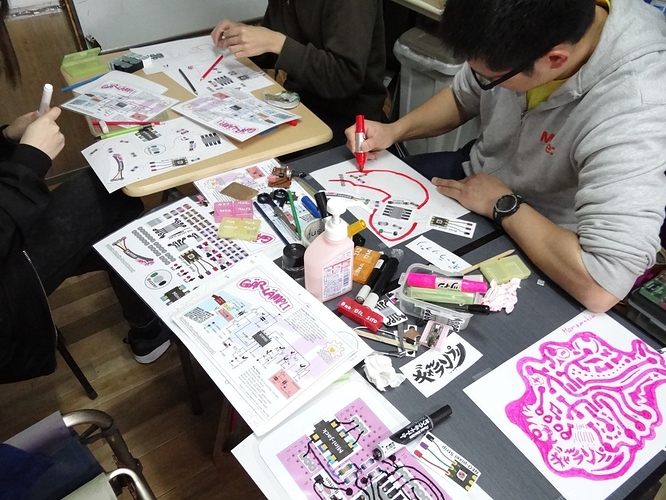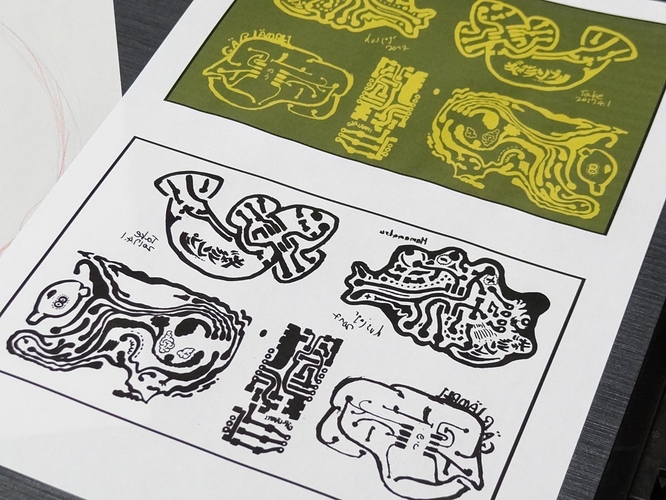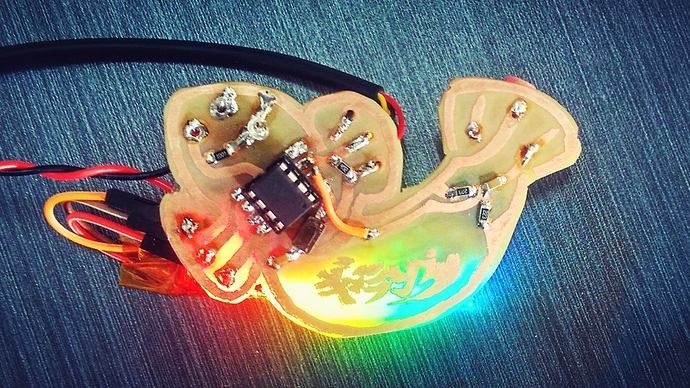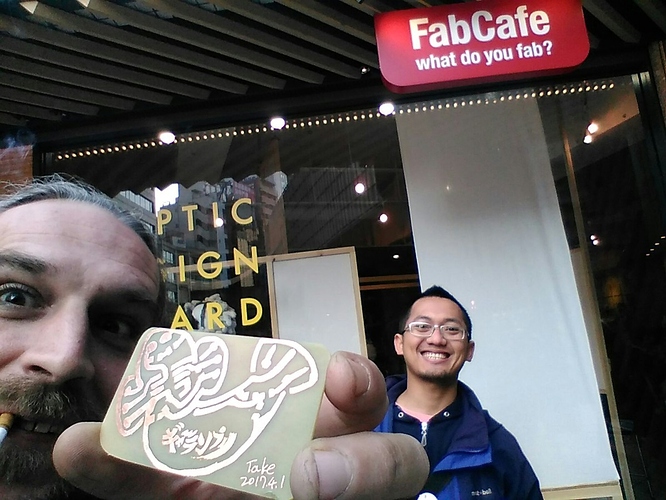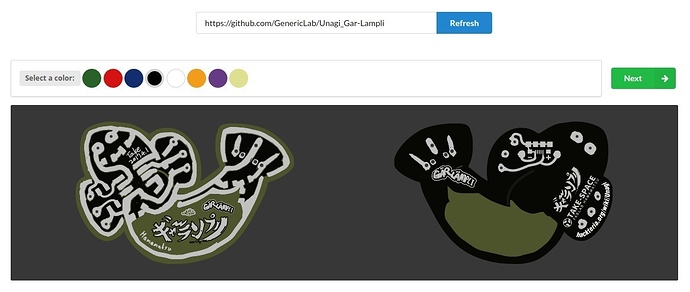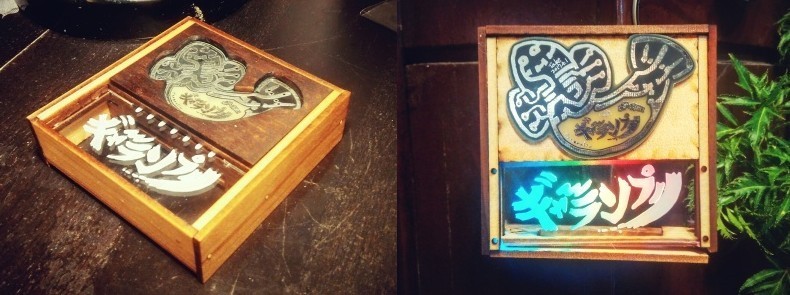Time has passed and I continued getting more experience with the diy-CAD creative PCB design tool…
Edited Docu on Hackteria Wiki and make a dedicated GitHub Repository
I just did a workshop in Hamamatsu on my way back from Chile, and this time in a more relaxed and friendly atmosphere, without the crazyness of GOSH all around. This time it worked very nice, we also had enough time and space for the session.
It definately needs more time for an interesting learning and making experience. In Take-Space we had almost 8 hours, relaxed with friends and kids visiting, food and drinks in between, and the creative and diverse output was really nice.
we then continued to make/etch the pcb’s and soldered them…
We then applied “just” the soldeirng the kit workshop in Tokya at the bioclub meetup in Fabcafe, hoping to “sell” those kits to the Shibuya hipsters, but they didnt even donate enought for my Shinkansen ticket! (i really should have joined the business model discussions…)
Coming back to Taipei, i then personally took the effort and prepared the Unagi (fish) file for Manufacturing, adding some extra features and logos, it’s already available on kitnic
And being in the flow, i also designed a little box to put the Thermometer / Fermentation monitor into a nice little “I want it!”-Gadget. it’s all open schmopen diy hardware for not-very scientific temperature measurement…
so i hope more people are picking up the diy-CAD design tool, or also just the kits we developed using it. I thnkn it can have it’s role in education, fun, for geeks/adults aswell as complete newbies to open hardware & pcb design. the full process gives them an amazing experience from drawing and having first time a pcb made in their hands in one (long) day.
this educational workshop project, specifically with attiny85 audio prog bootloader, is maybe not the most suitable, if its just about creative pcb making, other sound toys, synths and blinke shit might do the trick. but then on the other side, the audio programmable attiny, also called CocoNEO, is a very powerful low-cost µ-controller science/toy with much broader possible applications, similar to other data-loggers available by publiclab @jeff and many others.
you find more details and files on the hackteria wiki
happy to hear some feedback from the GOSH participants on how and where this workshop tool can be implemented.
greeeetttzz,
m
